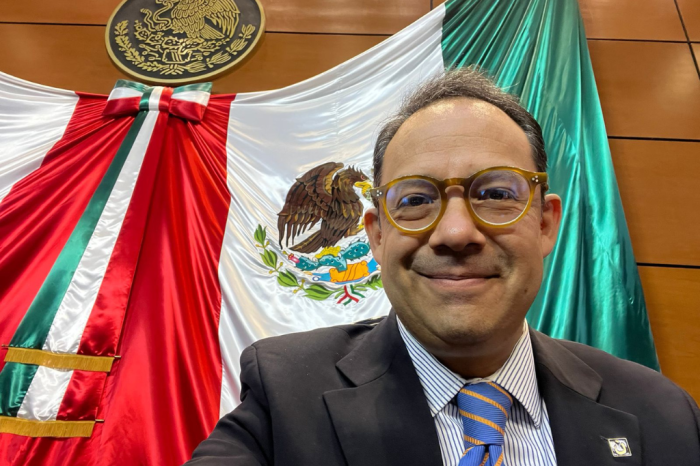Mexican politician convicted for ‘misgendering’ lawmaker in social media posts, awaits appeal

A former Mexican congressman convicted of "gender-based political violence" over social media posts referring to a trans-identifying congressional representative as a "man who self-ascribes as a woman" is calling on the international community to intervene concerning "systematic violations of fundamental rights."
Rodrigo Iván Cortés, the current head of the political advocacy group Frente Nacional por la Familia (National Front for the Family), addressed the Organization of American States last Wednesday as he awaits an appeal of his conviction.
"[In Mexico] the freedom of expression of citizens is canceled and their free participation in the democratic conformation of laws is prevented," Cortés said, according to ADF International, the advocacy group supporting him.
"Unfortunately, I suffer this in my own flesh in the cases that are being carried out against me and the organization that I preside over, the National Front for the Family, for objecting to initiatives that ostensibly violate human rights."
The charges against Cortés stem from a series of social media posts in 2022, where he allegedly "misgendered" congressional Salma Luévano, a Mexican congressional representative.
Cortés' social media posts were in response to a draft bill in Mexico's Congress, presented by Luévano, which critics say sought to categorize the teaching of Christian views on sexuality as "hate speech." Cortés' organization expressed its concern about the bill on Twitter, claiming it was a significant infringement on freedom of speech and religious liberty in Mexico.
Luévano filed a complaint against Cortés over a series of nine posts on Twitter and Facebook that he claims violated the right to be acknowledged as a woman and a "denial of identity."
Mexico's Specialized Regional Chamber of the Electoral Tribunal of the Federal Judicial Power agreed that Cortés was guilty of gender-based political violence and digital, symbolic, psychological and sexual violence against Luévano, ADF International reports. The chamber found that the social media posts undermined "the political and electoral rights of women, and the unencumbered exercise of their public office."
The case was appealed to the Superior Chamber of the Electoral Tribunal of the Federal Judicial Power, and a ruling is expected in the near future.
"Disagreement is not discrimination, and peaceful dissent should never be penalized as violence," ADF International legal counsel Kristina Hjelkrem said in a statement.
"It is deeply disturbing that Cortés, who is exercising his right to peaceably share his views on a matter of significant current debate, has been convicted as a violent political offender when in fact it is his opponents that have a history of perpetuating unrest within Mexico's political institutions. We eagerly await a ruling on his appeal."
Luévano, along with another trans-identified representative, María Clemente, are well-known figures in Mexico's Congress for their bold approach towards political opponents.
They are members of the left-wing MORENA party, which is working toward laws to protect "sexual rights," a proposal that has been vocally opposed by the Cortés' group.
"The real purpose of this process is to silence me from saying what every concerned citizen needs to hear — that these proposed laws are driving forward a radical agenda, which poses a very serious threat to the wellbeing of our society, especially our children," Cortés was quoted as saying.
ADF International said it has filed a similar case of Mexican Congressman Gabriel Quadri at the Inter-American Commission on Human Rights. Quadri, too, was convicted of "gender-based political violence" for his tweets on transgender ideology, following a complaint filed by Luévano. He is currently awaiting a decision on admissibility by the commission.
The Inter-American Commission on Human Rights is a project of the Organization of American States that works to “promote and protect human rights in the American hemisphere.”




























